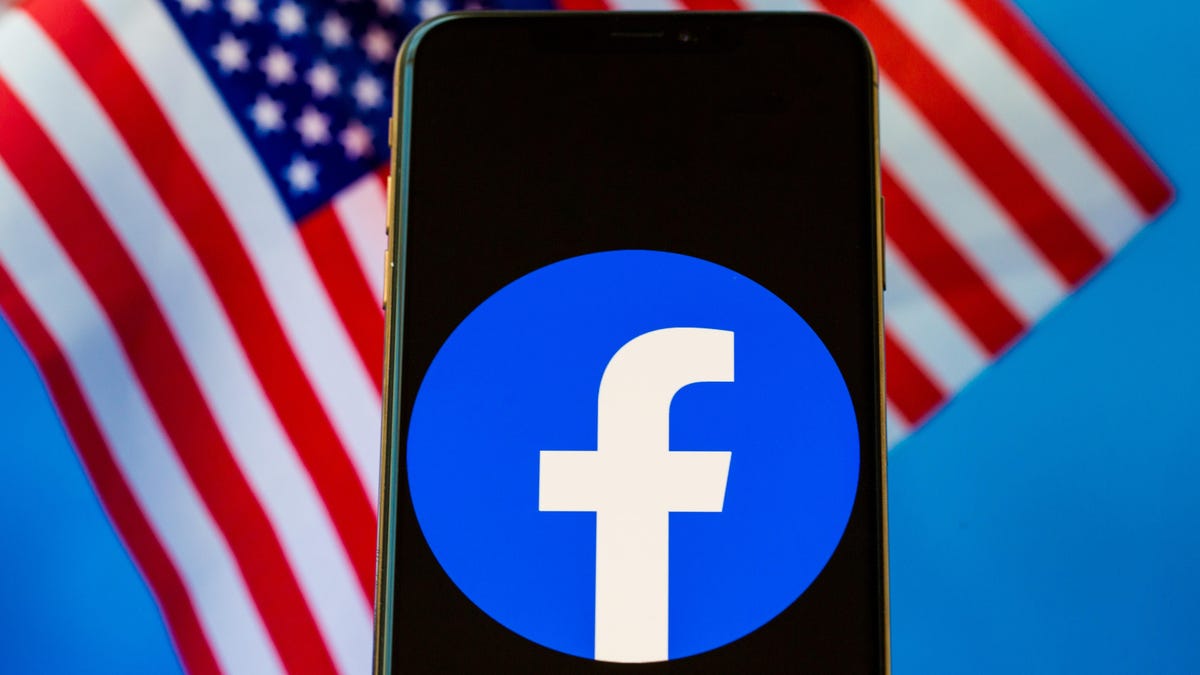Over 250 Facebook employees criticize policy that lets politicians lie in ads
In a letter obtained by The New York Times, employees give the social network's policy a big thumbs down.

Facebook lets politicians lie in ads.
A controversial policy that allows politicians to lie in Facebook ads has sparked criticism from the social network's own employees.
"We strongly object to this policy as it stands," Facebook employees said in a letter obtained by The New York Times. "It doesn't protect voices, but instead allows politicians to weaponize our platform by targeting people who believe that content posted by political figures is trustworthy." More than 250 employees signed the letter.
The letter, published by the Times on Monday, outlines six steps the company could take to combat misinformation in political ads. That includes a stronger visual design so users know it's a political ad, restricting ad targeting and capping the amount of money politicians can spend on these ads.
The letter was addressed to Facebook CEO Mark Zuckerberg and his executives on Facebook Workplace, a software program used to communicate internally, according to the Times.
The letter highlights the challenges Facebook faces as it tries to do more to combat misinformation ahead of the 2020 US elections. Zuckerberg and other Facebook executives have defended Facebook's decision to let politicians lie in ads even amid mounting criticism from civil rights groups and Democratic lawmakers. Earlier this month, Zuckerberg said during a speech at Georgetown University advocating for free expression that he doesn't think "most people want to live in a world where you can only post things that tech companies judge to be 100% true." He also said banning political ads from Facebook would favor incumbents and whoever the media decides to cover.
Facebook's ad policy continues to be put to the test. The social network rejected a request by Joe Biden's presidential campaign to remove a misleading ad by Donald Trump's reelection campaign that contained misinformation about the former vice president. The ad contained a 30-second video on Facebook that stated Biden had promised Ukraine $1 billion if officials in that country fired the prosecutor investigating a company affiliated with Biden's son -- a claim debunked by fact-checking groups and media reports.
Facebook told Biden's campaign in a letter that direct speech from a politician isn't eligible for Facebook's third-party fact checking program because it's already heavily scrutinized. To prove a point about the policy, presidential candidate Elizabeth Warren, a US Democratic senator from Massachusetts, ran an ad containing the deliberately false claim that Zuckerberg endorsed Trump. The ad noted that it included misinformation and Facebook didn't take it down.
Over the weekend, Facebook's ad policy was tested again after the political action committee The Really Online Lefty League included a video that falsely claimed that Republican Sen. Lindsey Graham had supported the Green New Deal. The climate proposal aims to reduce greenhouse gases and move the US to 100% renewable energy. Since the ad was posted by a political group and not by a politician, Facebook pulled it down after a third-party fact checker rated it as false.
A Facebook spokeswoman confirmed the letter was written by Facebook employees.
"Facebook's culture is built on openness so we appreciate our employees voicing their thoughts on this important topic," said Bertie Thomson, a Facebook spokeswoman said in a statement. "We remain committed to not censoring political speech, and will continue exploring additional steps we can take to bring increased transparency to political ads."
A person familiar with the matter said that the authors of the post have been conversing with leadership about it and took down the original letter.
Thomson declined to say if Facebook planned to implement any of the solutions outlined in the letter.
Some lawmakers on Monday praised the actions of Facebook's employees.
"Courageous workers at Facebook are now standing up to the corporation's leadership, challenging Zuckerberg's disturbing policy on allowing paid, targeted disinformation ads in the 2020 election," Rep. Alexandria Ocasio-Cortez, a New York Democrat, said in a tweet.
Courageous workers at Facebook are now standing up to the corporation’s leadership, challenging Zuckerberg’s disturbing policy on allowing paid, targeted disinformation ads in the 2020 election: https://t.co/jDJE7WplVy
— Alexandria Ocasio-Cortez (@AOC) October 28, 2019
Originally published Oct. 28, 12:08 p.m. PT
Update, 12:42 p.m. PT: Adds tweet from Alexandria Ocasio-Cortes.

